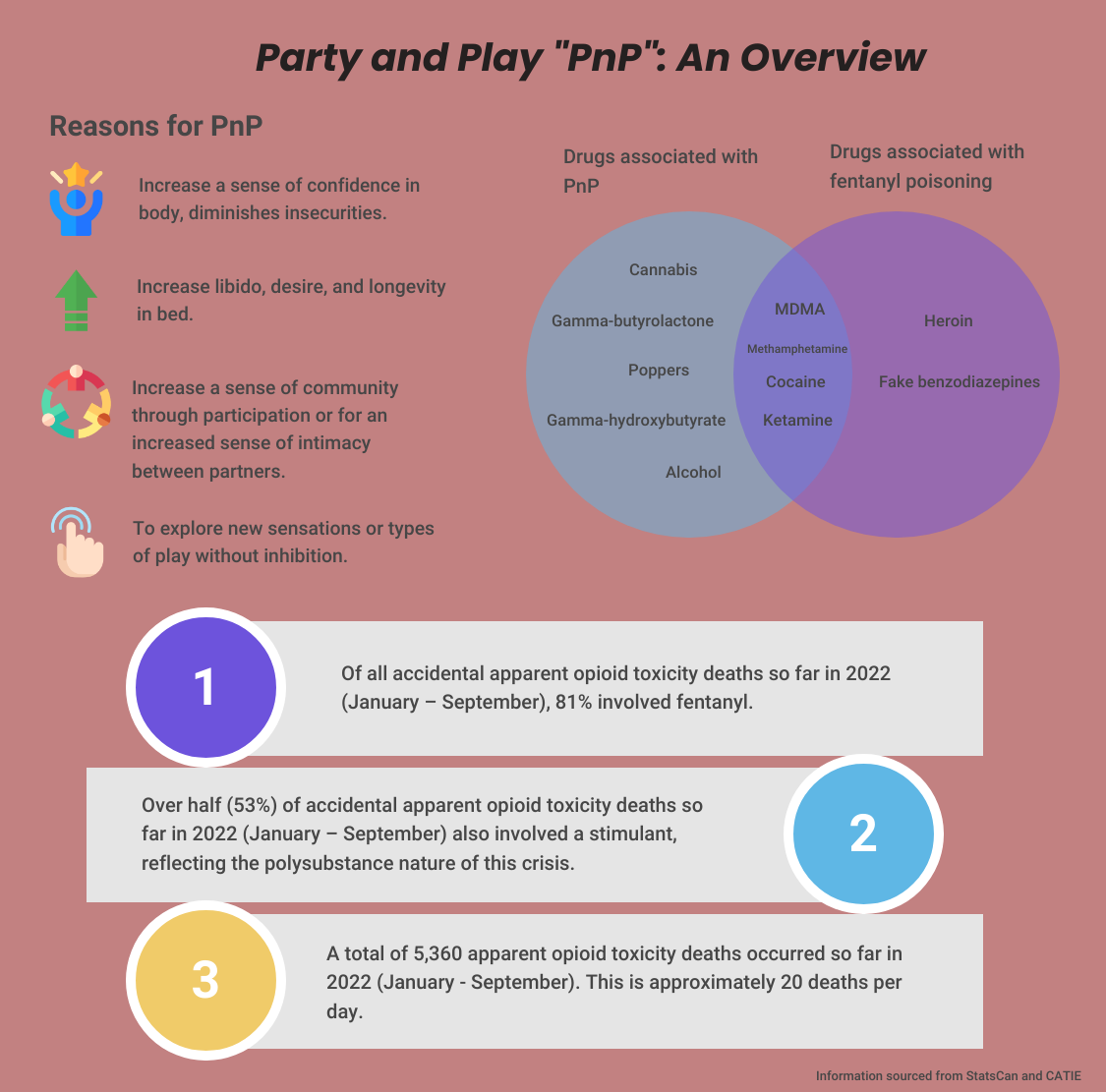
Party and play pose fentanyl risk
Sexualized drug use is heavily stigmatized... yet more common than you might think
By River Kero
For members of the queer community, fentanyl can pose a specific and dangerous problem with a lot of stigma.
Sexualized drug use — otherwise known as “party and play” or “PnP” — is a phenomenon that is associated with LGBTQ+ party spaces, as well as broader society.
Lived experience leads to advocacy
Joshua Cleaver is the program coordinator for substance use and contingency management at the Health Initiative for Men. He has lived experience with substance use, sex work, and homelessness. His experiences eventually led to him working to support these same communities.
“When I was pretty young, like 14, I was kicked out. I mean, ran away, I guess I should say,” said Cleaver. “I was homeless. I used [drugs] till I was probably about 25, like every day.”
Cleaver has spent the bulk of his career working with people who have HIV and with people who struggle with substance use.
“It gives my life meaning and purpose,” said Cleaver.
One of Cleaver’s primary duties is organizing an accessible drop-in group for community members who participate in party and play. The emphasis of this group is on creating accessible support networks and meeting the needs and wants of attendees.
Cleaver says his group has a “go with the flow” style. Guest speakers and activities are staples of this group, and he also uses it as an entry point into a more intensive counselling program for some attendees.
“It’s nice to have nonjudgmental space, and they just kind of share with each other,” said Cleaver. “It’s really nice to see.”
PnP has a great deal of stigma, even though Cleaver pointed out that many people engage in versions of it. Consuming alcohol before hooking up with someone could be considered on the spectrum of PnP.
“It’s a lot more widespread than we might think,” said Cleaver.
The group that he runs focuses primarily on the use of stimulants. For members of the queer community, PnP can be very tempting because it allows you to lose yourself in a sexual experience.
“People might use [drugs] more to enhance what they’re doing when they’re playing,” said Cleaver. “People might use it maybe— let’s say you have a lot of shame or something, or you’re nervous. I feel like it can be so many different things to so many different people.”
Cleaver’s focus is on harm reduction as opposed to abstinence when it comes to drug use. He says that harm reduction leads to abstinence more often than you think.
Cleaver says that in his experience, the presence of fentanyl has grown significantly during his time in Vancouver.
He says that during urine drug tests, he used to see some fentanyl but mostly heroin. These days, he sees fentanyl “completely 100 per cent”, and says that the effects of fentanyl and tainted drugs on the community will have long-term impacts that we will see in years to come.
The deaths are unimaginable
He speaks of a loss of a generation and compares the deaths to the AIDS epidemic.
“It’s hard to even fathom in your mind the amount of death and [the] amount of people [who] have died from overdoses and tainted drugs,” said Cleaver. “I feel like as humans, we can’t really conceptualize that.”
His own community has been greatly impacted.
“Everyone from a group of people I used to hang out with when I first moved to Vancouver… I am the only one still alive, and I’m only 35,” said Cleaver. “It affects every community, everyone.”
For Cleaver, one of the biggest ways to help the community of drug users is to reduce stigma. Those who engage in party and play have an even greater amount of stigma from larger society to deal with. Stigma can be incredibly damaging to members of the community.
“It keeps people from getting better,” said Cleaver, who added that stigma leads to self hatred, which leads to using, which leads to a cycle of drug abuse.


Good story! Nice lead and nutgraph!